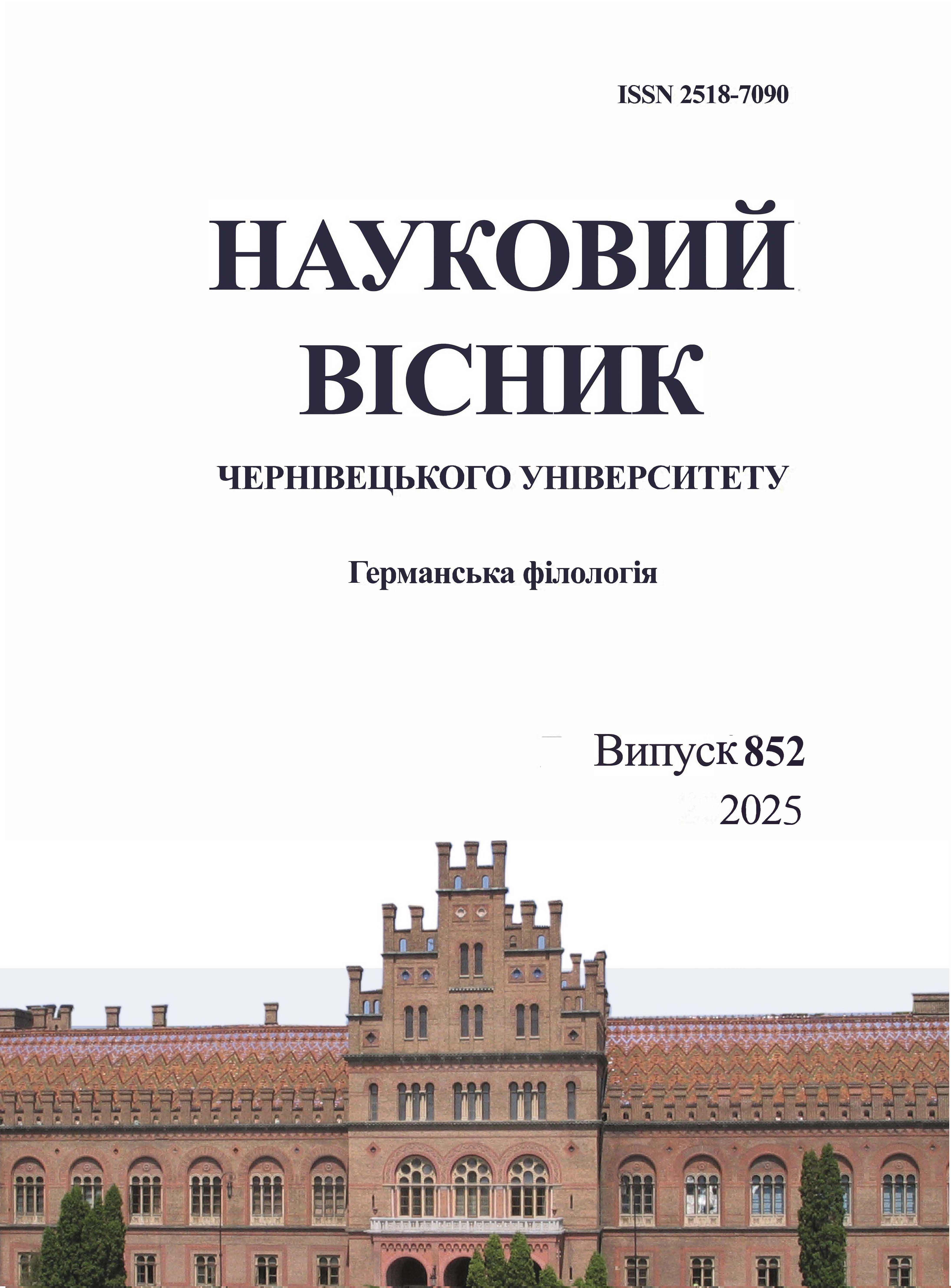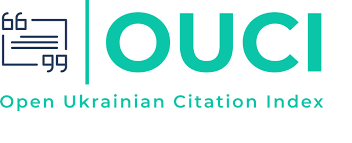ВПЛИВ ГЕНЕРАТИВНОГО ШІ НА ВИВЧЕННЯ ІНОЗЕМНОЇ МОВИ
DOI:
https://doi.org/10.31861/gph2025.852.151-161Ключові слова:
генеративний ШІ, вивчення іноземних мов, ChatGPT, зворотний зв’язок за допомогою AI, мовні технологіїАнотація
У цій статті розглядається інтеграція генеративних інструментів штучного інтелекту, зокрема ChatGPT, у програми навчання іноземних мов. Завдяки швидкому розвитку штучного інтелекту ці інструменти відкривають нові можливості для вдосконалення процесу вивчення мови через надання початкових варіантів перекладу, роз’яснення словникового запасу та граматичних конструкцій, а також забезпечення зворотного зв’язку в режимі реального часу. Дослідження аналізує потенціал використання AI для покращення ефективності навчального процесу, лінгвістичної точності та культурної адаптації як в академічних, так і в професійних середовищах. На основі комплексного огляду сучасної літератури та практичних вправ у змодельованих мовних сценаріях, у статті висвітлюються переваги та виклики використання AI як інструмента-співпрацівника, а не заміни викладача. Детально обговорюються питання етичного використання, захисту конфіденційності даних та необхідності постредагування машинно згенерованих матеріалів. Отримані результати свідчать про те, що, попри суттєве спрощення процесу навчання завдяки ChatGPT та подібним моделям, роль професійного викладача залишається незамінною для збереження нюансів і контексту. Поєднання AI та людського судження є ключовим для задоволення змінних вимог у навчанні іноземних мов.
Завантажити
Посилання
REFERENCES
Barrot, J. S. (2023). Using ChatGPT for second language writing: Pitfalls and potentials. Assessing Writing, 57, 100745. https://doi.org/10.1016/j.asw.2023.100745
Bonner, E., Lege, R., and Frazier, E. (2023). Large language model‐based artificial intelligence in the language classroom: Practical ideas for teaching. Teaching English with Technology, 23(1), 23–41. https://doi.org/10.56297/BKAM1691/WIEO1749
Celik, B., Yildiz, Y., and Kara, S. (2025). Using ChatGPT as a virtual speaking tutor to boost EFL learners’ speaking self‐efficacy. Australian Journal of Applied Linguistics, 8(1), 102418. https://doi.org/10.29140/ajal.v8n1.102418
Du, J., and Daniel, B. K. (2024). Transforming language education: A systematic review of AI‐powered chatbots for English as a foreign language speaking practice. Computers and Education: Artificial Intelligence, 6, 100230. https://doi.org/10.1016/j.caeai.2024.100230
Hong, W. C. H. (2023). The impact of ChatGPT on foreign language teaching and learning: Opportunities in education and research. Journal of Educational Technology and Innovation, 5(1). https://doi.org/10.61414/jeti.v5i1.103
House, J. Translation as Communication across Languages and Cultures. London & New York: Routledge Taylor &Francis Group.
Jackson, G. (2022). The Role of Artificial Intelligence in Language Learning. International Journal of Technology-Enhanced Learning.
Jeon, J., Lee, S., and Choe, H. (2023). Beyond ChatGPT: A conceptual framework and systematic review of speech‐recognition chatbots for language learning. Computers and Education, 206, 104898.
Karjagdi Çolak, M. (2024). Enhancing speaking skills through task repetition and ChatGPT integration in remedial EFL lessons: An action research approach. Focus on ELT Journal, 6(4), 1–16. https://doi.org/10.14744/felt.6.4.1
Kim, S., Shim, J., and Shim, J. (2023). A study on the utilization of OpenAI ChatGPT as a second language learning tool. Journal of Multimedia Information System, 10(1), 79–88. https://doi.org/10.33851/JMIS.2023.10.1.79
Krashen, S. D. (1982). Principles and practice in second language acquisition. Pergamon Press.
Mahapatra, S. (2024). Impact of ChatGPT on ESL students’ academic writing skills: A mixed methods intervention study. Smart Learning Environments, 11(1), 9.
Malik, Y. I., & Nikitenko, O. V. (2024). The Use of Artificial Intelligence as an Innovative Tool in Foreign Language Training in Higher Education Institutions. Perspectives and Innovations in Science, 5(39), 326–338. URL: http://perspectives.pp.ua/index.php/pis/article/download/ 11618/11678 (Accessed: 11 September 2024).
Mudryk, D. P. (2024). Modern Educational Technologies in Teaching the “Foreign Language” Discipline in Higher Education Institutions. Scientific Innovations and Advanced Technologies, 2(30), 1274–1285. URl: http://perspectives.pp.ua/index.php/nauka/article/download/9090/9137 (Accessed: 11 September 2024).
Sachete, A. D. S., de Sant’anna de Freitas Loiola, A. V., and Gomes, R. S. (2024). AdaptiveGPT: Towards intelligent adaptive learning. Multimedia Tools and Applications, 1–17.
Shin, D., and Lee, J. H. (2024). Exploratory study on the potential of ChatGPT as a rater of second language writing. Education and Information Technologies, 1–23. https://doi.org/10.1007/s10639-024-12817-6
Xiao, F., Zhao, P., Sha, H., Yang, D., and Warshauer, M. (2023). Conversational agents in language learning. Journal of China Computer-Assisted Language Learning. https://doi.org/10.1515/jccall-2022-0032
Yang, L., and Li, R. (2024). ChatGPT for L2 learning: Current status and implications. System, 124, 103351. https://doi.org/10.1016/j.system.2024.103351
Young, J. C., and Shishido, M. (2023). Evaluation of the potential usage of ChatGPT for providing easier reading materials for ESL students. In T. Bastiaens (Ed.), Proceedings of EdMedia + Innovate Learning (pp. 155–162). Association for the Advancement of Computing in Education (AACE). Retrieved March 15, 2025. URL: https://www.learntechlib.org/primary/p/222496/
Young, J. C., and Shishido, M. (2023). Investigating OpenAI’s ChatGPT potentials in generating chatbot dialogues for English as a foreign language learning. International Journal of Advanced Computer Science and Applications, 14(6).
Zawacki-Richter, O., Marín, V. I., Bond, M., and Gouverneur, F. (2019). Systematic review of research on artificial intelligence applications in higher education—Where are the educators? International Journal of Educational Technology in Higher Education, 16(1), 1–27. https://doi.org/10.1186/s41239-019-0171-0
Zhukevych, I., & Spirycheva, O. (2024). Transformation of Language Learning: Artificial Intelligence as a Tool for Developing Students’ Oral Skills. International Science Journal of Education & Linguistics, 3(3), 45–55. doi: 10.46299/j.isjel.20240303.06






